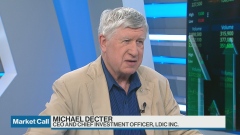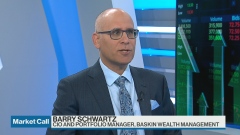Jun 15, 2023
Oil holds loss on Fed's signal of higher interest rates to come
, Bloomberg News
'We clearly don't have a demand problem' amid oil sector :Ninepoint Partners
Oil held losses driven by a big jump in U.S. crude stockpiles and as the Federal Reserve signaled it's not finished with rate hikes.
West Texas Intermediate futures traded near US$68 a barrel on Thursday after falling 1.7 per cent in the previous session. Fed officials paused in their run of interest-rate hikes but projected borrowing costs will go higher than previously expected to tame what Chair Jerome Powell called surprising persistent inflation.
The outlook led to renewed worries that higher rates will push the U.S. economy into a recession. It followed data that showed crude inventories in the country rose by the most in four months, while stockpiles at the key storage hub in Cushing, Oklahoma, swelled to a two-year high.

Crude in New York has lost 15 per cent this year but drifted since early May as concerns over a U.S. slowdown and a lackluster rebound in China's economy wrestle with Saudi-led supply cuts. China's apparent oil demand rose 17 per cent last month from a year ago, while industrial output also edged higher, according to official data released on Thursday.
“Many think oil prices are low because demand is weak,” said Giovanni Staunovo, a commodity analyst at UBS Group AG. “But despite the solid demand recovery, global visible oil inventories did not fall in the first four months of this year because supply growth was also solid.”
Prices:
- WTI for July delivery was little changed at US$68.31 a barrel at 9:56 a.m. in London.
- Brent for August rose 0.1 per cent to US$73.30 a barrel.
While there have been some bright spots for demand, the generally dour outlook has left Wall Street abandoning predictions for a sharply price rally this year. Both UBS and JPMorgan Chase & Co. have pulled back their price forecasts in recent days.




